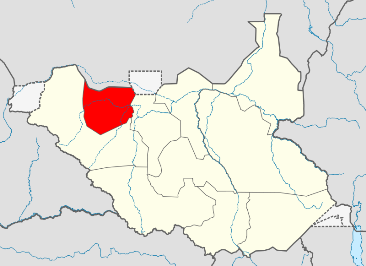N. Bahr el Ghazal officials accused of failing to remit taxes
January 1, 2015 (JUBA) – Authorities in South Sudan’s Northern Bahr el Ghazal state say three of its county commissioners failed to remit funds amounting to over a million South Sudanese Pounds (SSP), even after an investigatory committee issued a one-week ultimatum.

Bol Tong Tong, the chairperson of household tax investigation committee signed the 2 May 2014 document.
The report shows that former Aweil East commissioner Awet Kiir Awet failed to pay a total of 30,9046 SSP, while former Aweil South commissioner Jel Mangok failed to remit 51,272 SSP and former Awiel North commissioner Kuol Athuai Hal owes 50,143 SSP to the state ministry of finance, despite making collections.
The household tax was reconstituted by the state government after the first submission were made during which “huge irregularities” were discovered, prompting authorities to reconstitute a probe committee.
“The committee reviewed the report thoroughly and found that three counties of Aweil east, North and south did not pay the money even after the collections were completed in time. The committee found out that your county authority owes the ministry of finance sum of 309046 South Sudanese pounds,” partly reads the letter addressed to the former commissioner of Aweil East county.
Another letter with similar directives also queried why the former commissioners of Aweil South and Aweil North failed to remit funds.
A member of the investigation committee separately told Sudan Tribune last week that most officials he interacted with during the probe process seemed unaware that public corruption poses a fundamental threat to our national security and way of life.
“It impacts everything from how well our borders are secured and our neighborhoods protected to verdicts handed down in courts to the quality of our roads, schools, and other government services,” the official said.
“And it takes a significant toll on our pocketbooks, wasting millions in taxes every year,” he added.
(ST)
